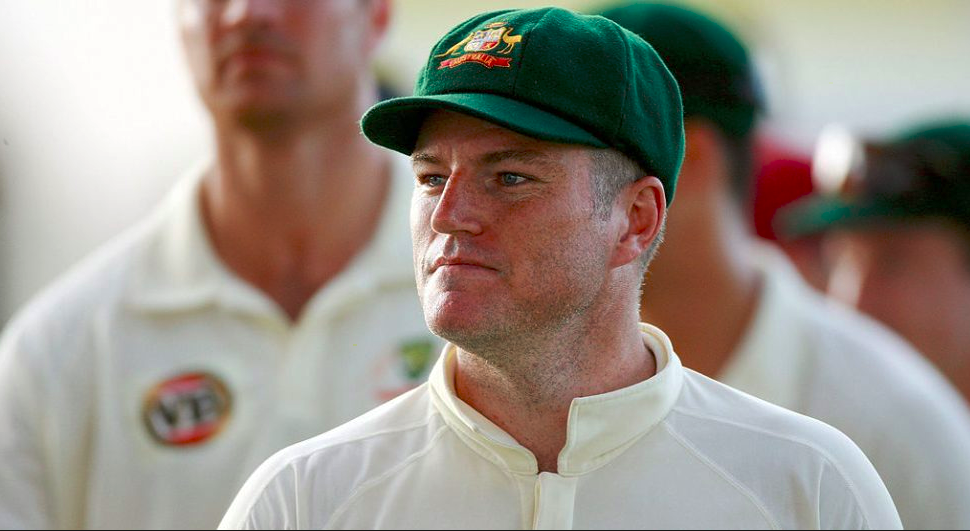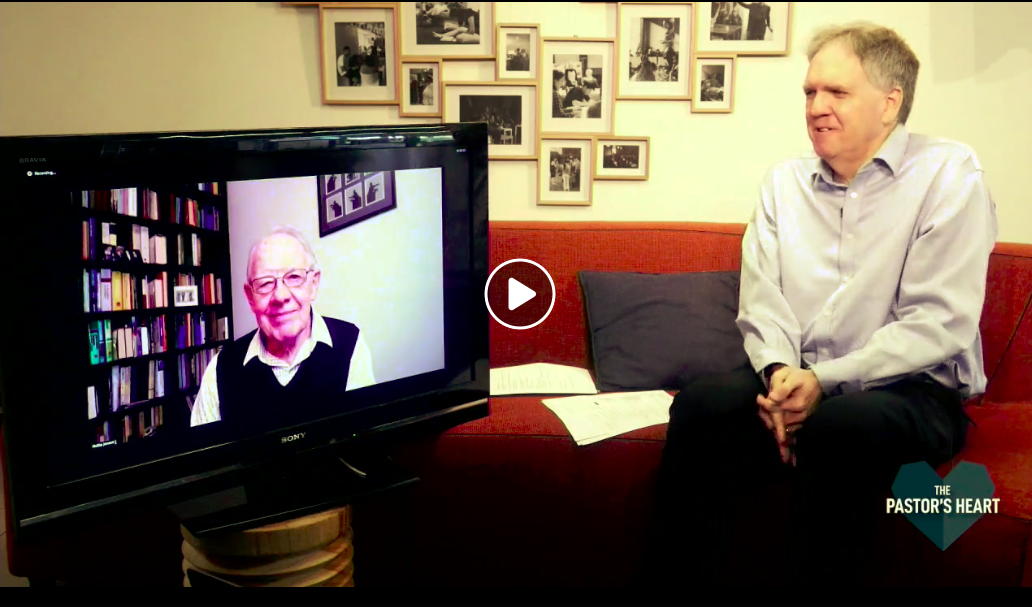July 14, 2020
The Sydney Anglican ministers’ drought: Why Shane Warne can’t tell us how to fix it

If you asked the legendary cricketer that is Shane Warne how he used to leg spin the Australian cricket team to victory he would kinda shrug his shoulders and say something like this:
Dunno. Eat a can of beans first I suppose. Have a quick smoke behind the change rooms. Send a cheeky text to someone I shouldn’t. Take some of me mum’s diuretics, then go snare six or seven wickets on a wearing pitch sometime after tea.
And with that he would be off to play poker online or some such. Of course he did practice hard, so let’s not forget that, but there was something about him, about the sheer physical and psychological presence of Warne, that could pull victories from the jaws of defeat time and time again.
Stuart MacGill, another great Aussie leg spin bowler, worked hard at his craft. And you felt that he did. Don’t get me wrong, he was great, and when bowling in tandem with Warne, had a better average. But Stuart MacGill was no Shane Warne.

Not a cigarette in sight
Which all means if you want someone to teach you the art of leg spin bowling, go speak to Stuart MacGill and not Shane Warne. MacGill’s had to think and think and think about it in a way that just came naturally to Warne. He’s had to strategise and sweat over solutions that came naturally to Warne, who after all, was the man who resurrected the dying art of leg spin. Everyone else after that is riding on his not insignificant cricket shirt tails.
I recently watched Phillip Jensen’s conversation with Dominic Steele on The Pastor’s Heart, which purported to address the much discussed (in Sydney at least) issue of the ministers’ drought and what to do about it.
There has been some concern that at least 30 (I heard 43 from someone else) Anglican parishes in Sydney are vacant. And further to that the number of students signing up full time for study at Moore Theological College is down (which mirrors many colleges across the West, it has to be said). Dominic asked Phillip Jensen on to discuss the matter, given his ministry credentials.

Yet as I watched, it felt like Dominic was asking Shane Warne a question that could probably be answered more incisively by Stuart MacGill.
Phillip Jensen had some insightful things to say. He always does. He had some things to say that I thought were not so insightful. He seems to do that too. The trick is to pick which is which!
But you shouldn’t ask a Shane Warne the answer to an intractable cricketing problem. Why? Because the solution is easy. It’s as easy as eating a can of beans, as simple as having a sneaky cigarette. Shane Warne can tell you about his success stories for sure, but he can’t really teach you the strategies for having the same level of success yourself. He just was. He was Warnie.
And perhaps the same with Phillip Jensen. I don’t know him, but know a lot about him, and the tales of how he pulled a gospel training ministry out of the ground by God’s grace are legendary. As legendary as Shane Warne. With as much success.
And perhaps with as little ability as Shane had to hand that success on to a successor. Goodness knows we were waiting for the next Shane Warne for some time in Australian cricket. Looking for someone groomed and trained by the great man himself, not simply to hold up an end, but to blast their way through an opposition’s top order before lunch on the fifth day.
That next Shane Warne never came. Australia has had to craft its cricket around other characters, other skills, other bowlers, and has had to adapt its game to suit.
Here’s the thing about finding another Shane Warne. That bowler has to have at least as much, if not more, nous and skill in the same areas as the great man, but some others thrown in for good measure to ensure that he didn’t fall behind the times as other cricketing nations learned to counter that type of bowling.
And the person least likely to source that person, or get them up to speed to be that person, would be Shane Warne himself. Shane didn’t do other Shanes. He barely coped with bowling alongside Stuart MacGill. That much was obvious.
And perhaps there’s something of the Shane Warne in Phillip Jensen. He was raised up by God to do a specific task at a specific time in Sydney, and it was vital and creative and brilliant. Many a young man went on into full time pastoral ministry and occupied one of those parishes as a senior minister, under the tutelage and eye of Phillip Jensen.
But when Phillip Jensen stepped down from his roles and took his foot off the pedal a little, there were plenty of Stuart MacGills around, but there was no new Shane Warne. Perhaps the Anglican Church in Sydney is simply coming into parity with many dioceses and denominations around the Western world, just as Australia came into parity with the other cricketing nations when Warne retired.
Look it’s not a shame to say that Phillip Jensen didn’t raise up the next Phillip Jensen. Big character men rarely do. They can raise up people who can fulfil the vision that they have set. But that’s not the same as raising up the person who can then go on to raise up the next lot of people who can fulfil the vision they have set. They don’t tend to attract rivals to their role in the team, if you get my drift.
In other words, perhaps with people like Warne and Jensen, there’s no system. It’s just a gift at a moment in time, and in that time the team or the diocese can reorder its way of doing things around them, and draw immense benefit from them. But that won’t last forever. And that’s okay. There’s something providential about that, in Phillip Jensen’s case, at least! God raised him up for a task, and it’s not as simple as handing on the cloak to an Elisha.
People such as Warne and Jensen simply cannot replicate themselves, and given how much strong personality is in both of those men, you’d be surprised if they could. And if they cannot replicate themselves, then they cannot replicate the unique thing they brought to the craft. For Warne that was a lot of wickets for himself and a lot of victories for Australia. For Phillip Jensen that was a significant ministry and a bulging Moore College.
Yet perhaps that’s why, as I listened to the half hour or so of Phillip Jensen speaking, it didn’t give me what was advertised on the can. And I don’t mean baked beans. I was struck by Jensen’s brilliance, his insight into the gospel, his conviction and passion, his articulation of theological nuance (the difference between “the work of the Lord” and “working for the Lord”, for example, even if I don’t fully agree with everything he said).
I was less struck by the constant narrative that full time ministry is a nobler role than any other role. Not because I don’t believe it’s a super important task, but because I think it probably led to many an earnest person ill-fitted to full-time gospel ministry in a parish ministry setting, junking their career and going to theological college. In the same way someone would rather have no marriage than an unhappy marriage, I’d rather have an empty parish pulpit than a brutally struggling one.
It could have been a case of “never mind the quality, feel the width”. If you’ve got young people in the palm of your hands hanging on your every word, there needs to be a safety brake to the unspoken, but often felt, idea that full time ministry should be the default position of every Christian, unless one can find an opt-out. The older I’ve gotten it seems “opt-in” is the wiser idea. Especially with the train wrecks I have seen.
But the title of the episode was “the minister drought and what to do about it“. And I didn’t get the “what to do about it” bit. At least not in a well thought out strategic approach. I mean it was half an hour, so I wasn’t expecting an extensive White Paper. But you wouldn’t go to the Pastor’s Heart Facebook page with a note pad in hand if you were the registrar at Moore College, hoping to crack the code as to why the parishes are vacant and the college numbers lower.
Now that’s not to say that Phillip Jensen right at the end did not have a go at it. He did. But as someone said in the Facebook comments, it was like a hand grenade rolled down the aisle. Or to put it another way, a spitting, humming Warnie wrong ‘un to a South African middle order bunny two balls before tea.
Here’s what Phillip Jensen said in response to a question right at the end of the video about whether churches are no longer articulating a vision of the gospel well enough to compel people to consider full time Christian ministry:
“It’s worse than not articulating a vision of the gospel. I suspect we’re not articulating the gospel. Because if you articulate the gospel properly you will articulate your vision for the gospel. But you’re right… when an organisation is not recruiting people in, I suspect it’s a prima facie case that we’re not articulating the vision of the gospel. But the way you articulate the vision of the gospel is not by running a vision session. It is by consistently, continually, at every level and every point so preaching the gospel that its vision is obvious.”
I get that. I get the need to articulate the gospel. But great articulators of the gospel are not necessarily great trainers who can create pathways and structures to become great articulators of the gospel. In fact it’s not always the greatest gospel articulators who do. Often, from where I sit, it’s the type of older bloke who can, by sheer dint of a strong personality, gather around him the types of younger blokes who will go on to be the next articulators of the gospel. But it sometimes comes with a body count.
When Dominic responded that that was a very deep challenge given some of the problems going around the place, (did he mean within the diocese, the city, or the culture?), Phillip Jensen’s response was kinda non-committal:
“Yeah I guess so. If the cap fits …”
And there you have it. If the cap fits. It kinda felt like the baked beans answer.
And with that the interview was over. Just when I felt it could have started. Just when I felt it could have started with an overview of what some of those challenges are. From where I sit they are deep, entrenched and diverse. And they’re worth discussing. But not by Shane Warne. Not by Shane Warne.
If we’re in a post-Shane Warne lean spell, then we’re going to have to sit down and discuss how, with a good vision of the gospel, some long term strategies can be put in place that overcome some of the hurdles for men – and their families – going into full time ministry in a diocese such as Sydney. I want to have that conversation and come up with those strategies. And for that conversation we might just need Stuart MacGill.
Written by
There is no guarantee that Jesus will return in our desired timeframe. Yet we have no reason to be anxious, because even if the timeframe is not guaranteed, the outcome is! We don’t have to waste energy being anxious; we can put it to better use.
Stephen McAlpine – futureproof
Stay in the know
Receive content updates, new blog articles and upcoming events all to your inbox.


